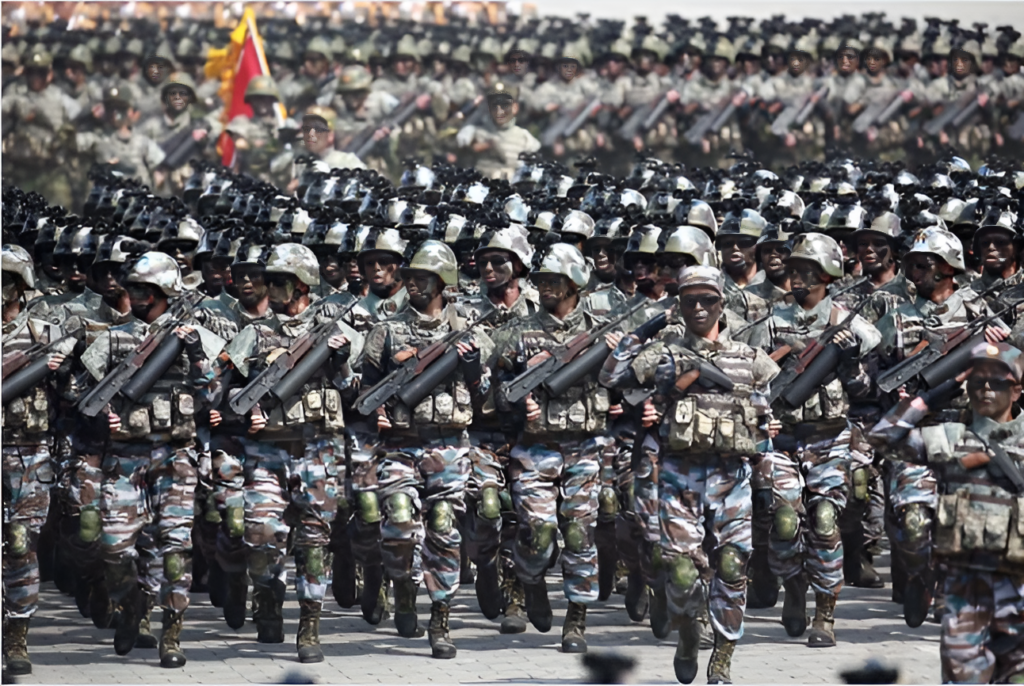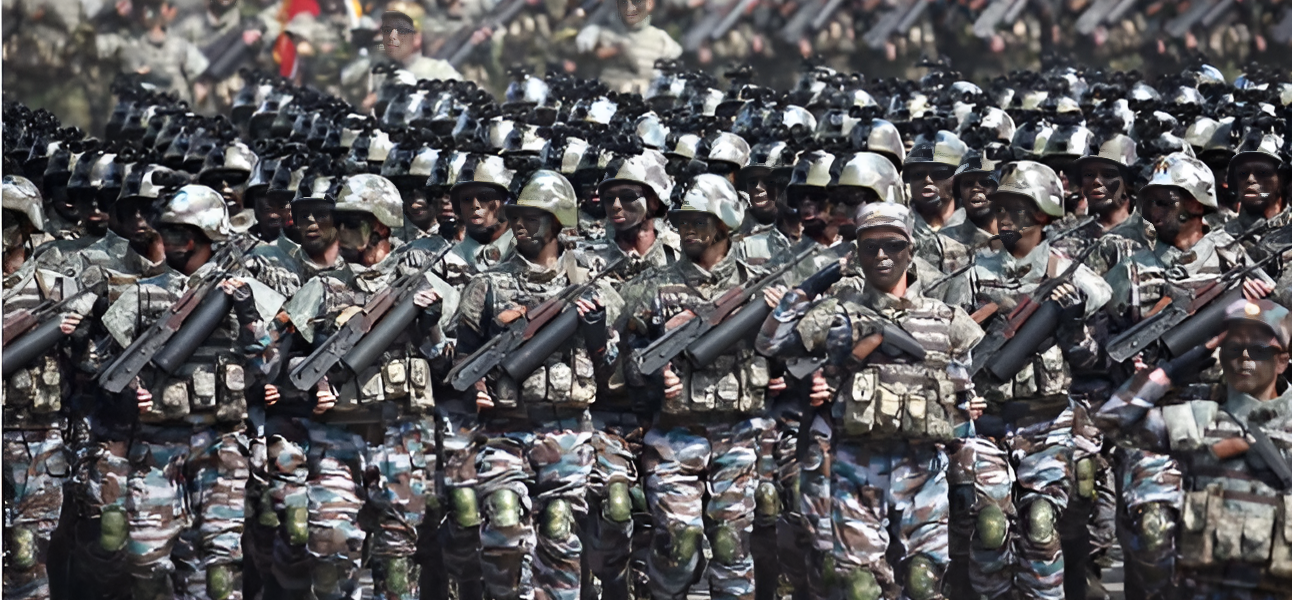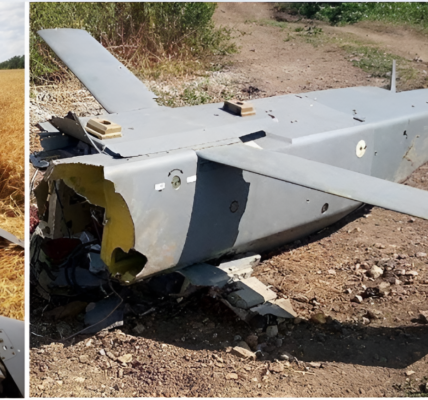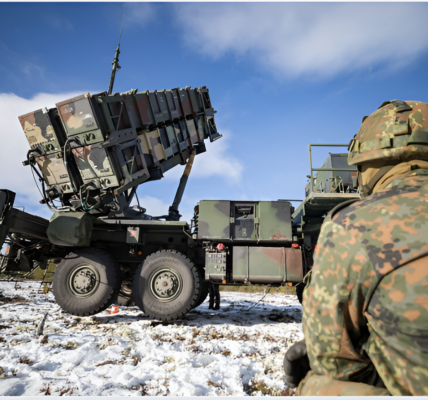North Korean Special Forces in Syria: Pyongyang’s Strategic Support for Damascus’ Counterinsurgency Operations

For decades, North Korea has been one of Syria’s most steadfast allies, and the relationship between the two nations has deepened further amidst the ongoing conflict in Syria. North Korean military support to Damascus, dating back to the 1970s, has been crucial in modernizing Syria’s military capabilities and countering external threats. From the Yom Kippur War to the current struggle against Islamist insurgent groups, North Korean assistance has played a significant role in bolstering Syria’s defense infrastructure, including supplying weapons systems and military expertise.
One of North Korea’s most important contributions to Syria’s defense has been the upgrade of its Soviet-era military hardware. The Korean People’s Army (KPA) has helped modernize Syria’s artillery, armored vehicles, and surface-to-air missile systems, ensuring Syria’s ability to maintain a defense against threats from neighboring Israel and other regional actors. North Korea also provided Syria with its own ballistic missile arsenal, including the Hwasong-5 and Hwasong-6 missiles, crucial for maintaining a semblance of deterrence against Israel’s military superiority.
In the midst of Syria’s ongoing counterinsurgency campaign against Western-backed Islamist militant groups, North Korea’s support has been indispensable. The KPA has been involved in upgrading Syria’s surface-to-air missile network, allowing Damascus to fend off air attacks from both Israel and Western powers. Given that Syria’s access to advanced air defense systems from Russia has been limited, North Korean assistance in enhancing Syria’s missile defense capabilities has been invaluable.
Reports suggest that North Korea has gone beyond military assistance and deployed ground troops to Syria. While this is not unprecedented—North Korean personnel have served alongside Syrian forces during previous conflicts, including the Lebanon War and the Yom Kippur War—this latest deployment underscores the growing threat to Syrian sovereignty. In fact, until 2015, there were real fears that the Syrian government might collapse under the onslaught of ISIS and other extremist groups. North Korean military personnel have stepped in to prevent such a loss, securing their ally’s sovereignty and denying the West a strategic victory in the region.
The importance of this relationship is not lost on North Korea. With Syria’s continued alignment with Tehran, another key ally of Pyongyang, maintaining Syria as a partner in the Middle East is vital for North Korea’s broader geopolitical strategy. By supporting Syria, North Korea effectively divides the attention of Western powers, forcing them to allocate resources to the Middle East while also keeping a watchful eye on developments in East Asia. This mirrors North Korea’s strategy during the Vietnam War, where it provided significant military support to North Vietnam while simultaneously engaging the U.S. in provocations on the Korean Peninsula.
Among the most elite assets North Korea has contributed to Syria are its special forces, some of the world’s most formidable and numerous units. With approximately 180,000 personnel, North Korea’s special forces are renowned for their clandestine operations and proficiency in behind-enemy-lines warfare. Their skills were on full display in 1996, when three special forces operatives infiltrated South Korea, evading capture for nearly 50 days despite a massive manhunt. This experience has shaped North Korea’s ability to wage highly effective operations against less-trained, less-equipped adversaries—such as the Islamist forces in Syria.
In Syria, North Korean special forces have proven essential in counterinsurgency efforts. These elite units have been instrumental in neutralizing heavily armed insurgent groups equipped with the latest Western weaponry. Their ability to operate effectively against adversaries—some of whom are bolstered by Western-trained special forces—has made them a critical asset to the Syrian government’s efforts to regain control of contested areas.
The effectiveness of these special forces was highlighted in 2016 when representatives of Western-backed insurgent forces accused North Korea of deploying specialized military units to Syria. Syrian opposition leaders specifically mentioned the lethal nature of these forces, underscoring their impact on the ongoing conflict. The North Korean personnel operating in Syria have provided invaluable experience in urban warfare and capturing fortified positions—critical capabilities for Pyongyang’s forces as they continue to refine their combat tactics.
In conclusion, North Korea’s military involvement in Syria serves multiple strategic purposes. Beyond assisting in Syria’s defense, Pyongyang benefits by gaining vital battlefield experience, particularly in countering Western military tactics and technologies. As the conflict in Syria continues, North Korean special forces may well prove to be the most formidable opponents that Islamist groups such as ISIS and Al-Qaeda face, underscoring the potent capabilities of North Korea’s military assets in the Middle East. This longstanding alliance between Pyongyang and Damascus not only strengthens Syria’s defense against foreign adversaries but also serves North Korea’s broader strategic objectives in the Middle East and beyond.



